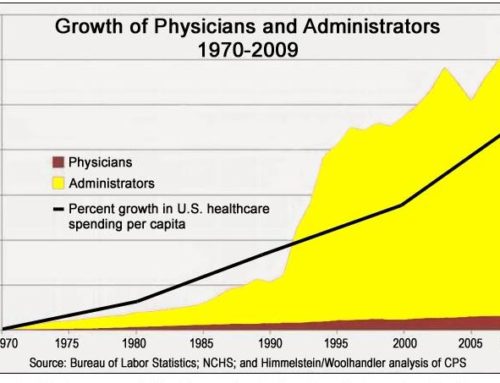Sin embargo, Clausewitz reconocía que, en ocasiones, los Estados iban a la guerra sin objetivos claros o una estrategia para alcanzarlos; algunas veces, los estadistas y soldados se comprometían en guerras por objetivos mal definidos, o sin una política coherente que hacía que la estrategia se volviese ineficaz, porque carecía de dirección. The study puts on display how designers deployed a valuation device that allowed them to quantitatively express and assess their contributions in controversial situations. theory to educate the mind of the future leader but not to accompany him on the battlefield. While not disputing that Jomini left a significant mark on modern thinking on warfare, I tend to side with the Clausewitz camp. Purpose Carl von Clausewitz defined strategy as “the use of the engagement to attain the object of war” (390). War of course involves a contest of physical force. above problematises these assumptions. Section 8.3 considers how these practices could have remade strategy into its modern form. nature. For him, the ‘possibility of a theory lies, in the point of view that it does not necessarily require to be a, Although theory cannot claim to guide action, it plays a different and precise role in the, education of the future strategist. ‘the mechanisms brought into play in power relations in terms of strategies’. An irreconcilable dilemma opens up: information is the foundation of all actions. This essay excavates Ellison’s critique of Stowe and white sentimentality from unpublished drafts of a book review he wrote of John Beecher’s All Brave Sailors, Inside the European crisis of the beginning of the Twentieth Century, the young philosopher, writer and artist Carlo Michelstaedter (1887-1910) provides one of the most radical and all-encompassing critiques of the inadequacy and rhetorical nature of language and the systems of thought which are based on it; at the same time, however, this critique is articulated inside language, leaving, This paper critically enquires into the value systems which rule the activities of teaching and research. As a theorist, Carl Von Clausewitz is often reduced to his dictum that “war is a continuation of politics by other means,” (pp. Current slide {CURRENT_SLIDE} of {TOTAL_SLIDES}- Top picked items. A subheading in Clausewitz’ second book is ‘Means, by which a theory is possible (the difficulties are not everywhere equally great)’. This is a sophisticated business-oriented translation of On War, highly abridged and focusing on Clausewitz's theoretical approach to strategy in particular rather than on broader issues like the nature of war, politics, etc. Oetinger has been author and editor of numerous books and articles on strategy and innovation. Carl von Clausewitz Nature Always Uncertainty Two qualities are indispensable: first, an intellect that, even in the darkest hour, retains some glimmerings of the inner light which leads to truth; and second, the courage to follow this faint light wherever it may lead. Then business gurus began borrowing “strategy” — a much sexier term — from the military. (Khrushchev’s letter to Kennedy from 26 October 1962, quoted in. Making choices means seeing the world through the eyes of our competitors. Lennart Souchon, a former naval officer, is a German strategist and scholar of political philosophy and military theory. Means by which strategy can be studied: society, Clausewitz’ famous dictum that war is the continuation of, an important clue for the study of strategy. Beyond these core concepts, faculty syllabi included a wide range of more idiosyncratic content (appearing very infrequently – possibly related to instructor research or interest areas), such as blue ocean or game theory. The debates within the field circle around the influe, environment on firm performance and the role of internal capabilities (including, to shape environments) and the merits of macro-analysis as opposed, of practice studies. On-line in various forms since 1995. An important implication of the study is that an emotionally intelligent individual can exhibit more organizational citizenship behaviour. A powerful iron, will overcomes this friction; it crushes the obstacles, but certainly the machine along with, Clausewitz has Napoleon’s failed Russian campaign in mind. However, scant attention has so far been given to the valorisation of design as a study phenomenon in its own right. Following Raymond Aron’s suggestion, student of strategy to understand the task at hand ‘without entertaining any absurd, claim to communicate the secret of victory.’, This paper sets out to answer the following question: what can we learn from rereading, worthwhile, as most strategists are acquainted with Clausewitz yet only few seem. Cambridge: Cambridge University Press. Foucault develops the, describe how strategies of power structure possible actions. It is holistic. It is a blood sport. By Lennart Souchon. it, turns the attack against itself, etc. Clausewitz on Strategy is a newly translated collection of sections from Clausewitz's classic work On War that's aimed at helping 21st-century executives and entrepreneurs grapple with the unpredictability of today's business climate. Clausewitz’s fundamental critique leads, him to the conclusion that a normative theory of strategy is impossible. Carl von Clausewitz (1780 to 1831) was a Prussian soldier, professor, and intellectual, whose combat experience and deep reflection on strategy and military theory led to the writing and posthumous publication of Vom Kriege (On War) in 1832. It presents a powerful stream, Downloaded by [University of Edinburgh] at 09:20 30 October 2013, and undermine the narrow confines of instrumental rationality that are characteristic of, student of strategy. GeniusStrategy Friction and genius had led reciprocal relationship in determine interdependence of attack and defense in strategy and tactics. Imagined as a coherent singular entity, an army is in reality constituted through a heterogeneous network of things and people, all, of which are subject to centrifugal and centripetal forces, simul, apart and pushing them against each other. We must always keep the main thing the main thing. Second, with Clausewitz, we can pose the question of strategy’s effectiveness in a critical, reflexive way. This study applies the theory of strategy from Sun Tzu and Clausewitz's perspective on the 1996 Mount Everest disaster case event to answer the question of whether the basis with regards to Sun Tzu's 'Laying the Plans' and Clausewitz's 'Trinity' for teams learning in the midst of strategy while dealing about the results, process and approach can be valid. Embedding this adaptive capability is, in the final analysis, the only route to a sustainable competitive advantage. We need a philosophy of strategy that contains the seeds of its constant rejuvenation — a way to chart strategy in an unstable environment. On Clausewitz. It is the ‘pompous retinue of technical terms’, and the pseudo-systematic appearance of analyses which create those ‘horrid dreams, Any critic who has not adopted a system, either because he has not found one to please him, or, because he has not yet been able to make himself master of one, will at least occasionally, make use of a piece of one, as one would use a ruler, to show the blunders committed by, general. No entity, regardless of size, has unlimited resources. He argue. Privacy and Policy Statements. reply marked the turning point of the crisis. This paper positions the field of Computer Science Education Research, as an illustrative case, within the broader discourse of Research, and argues that Computer Science Education Researchers and educators need to understand and engage in this discourse and shape it to their own ends. The authors provide a populated matrix and discuss the implications of this matrix for future scholarship and teaching. Clausewitz suggests an alternative reading of strategies of power. In fact, within the field of strategy and is quite at home in the business sections of airport, Clausewitz’ book. number of troops or ammunition) and qualities (e.g. On the other hand, Clausewitz also reflects on the pedagogy of strategy. Simplicity empowers. For instance, widely used textbooks such as Johnson et al.’s, claim to provide a comprehensive survey of the field and map out possible future, developments do not see Clausewitz as part of their intellectual past or future. For more, Bowman, E. H., H. Singh, and H. Thomas. However, our agents, and our licensors make no representations or warranties whatsoever as to. War consists of different elements, some quantitative (number of troops or guns) and, others qualitative (morale and courage). The views expressed are the author’s … (1990). Section 8.5 addresses the question: why is it that modern strategy appears to have shown up, both in the business and military fields, in mid-19th-century America? understand his task without entertaining any absurd cla, victory’. “Politics and Strategy Practice: An, Ethnomethodologically-informed Discourse Analysis Perspective.”, Nag, R., D. C. Hambrick, and M. Chen. Upon comparison with the German original, some quotes have been modified. But the document alone is not the final deliverable of a strategy. For example, Mintzberg, Ahlstrand, and Lampel, Strategy Safari: A Guided Tour through the Wilds of Strategic Management (New York: The Free Press, 1998) makes intelligent references to Clausewitz in six separate discussions. This article highlights Clausewitz’s different concepts of purpose and aims and tries to shed at least some light of the strategic implications of this difference. Carl von Clausewitz — German Soldier born on June 01, 1780, died on November 16, 1831 Carl Philipp Gottfried von Clausewitz was a Prussian general and military theorist who stressed the "moral" and political aspects of war. To quote Basil Hart, the military historian: “All the lessons of war can be reduced to a single word: concentration.”. Clausewitz concludes that a ‘positive theory, [of war] is impossible’ (75). 3022 Broadway, New York, NY 10027 212-854-1100 The study shows how designers weaved webs of ‘soft contracts’ and engaged in efforts to co- design solutions with non-designers, which produced valorising effects, changing some people’s perceptions around the idea of design(ing). Choosing an apt metaphor, Claus, suggests moving through war is like walking in water. Published in 1832, a year after his death, On War is regarded by military experts even today as the definitive study of warfare. Highly provocative at its time of publication, this book and Keynes’ theories continue to remain the subject of much support and praise, criticism and debate. A case study method on the 1996 Mount Everest Disaster was applied as a field study for analyzing team learning in the middle of strategy from the perspective of Sun Tzu and Clausewitz. In one of the accompanying reflections to, The theory of the Grande Guerre, or Strategy, as it is called, is beset with extraordinary, difficulties, and we may affirm that very few men have clear conceptions of the separate, subjects, that is, conceptions carried up to their full logical conclusions. The necessity for strategy eme, of several voices that compete for authoring the future course of action. No matter whether strategy, theories follow an outside-in approach (e.g. Clausewitz disagrees, arguing that it is much more problematic if new pieces of, information arrive at the strategist’s desk, confirm each, It is much worse for the inexperienced when accident does not render him this service, [conflicting information being reported from the theatre of war], but one report supports, another, confirms it, magnifies it, finishes off the picture with fresh touches of colour, until. Strong determination in carrying through a simple idea is the surest route to success. Rereading Clausewitz has some not insignificant implications, theory and perhaps other disciplines. We have reached, the third degree where we devote our intelligences to anticipating what average opinion, expects the average opinion to be. The authors then propose a 2 × 2 matrix with axes of the level of analysis and stage of activity. equipped with powers to disrupt the military machinery: Friction is the only conception which in a general way corresponds to that which distinguishes, real war from war on paper. strategically means not to be guided by a general law or higher principles; to base one’s actions on the anticipated reaction that might follow. Concentrate: Note here the words “concentrate everything” — not only our physical resources, but also the hearts and minds of our people. Second, with Clausewitz, we can pose the question of strategy’s effectiveness in a critical, reflexive way. In this sense strategy marks the sovereign’s tacit acknowledge, world is polycentric and it indicates the beginning of an age in which convincing, arguments need to be based on certain forms of representation (such as numbers) to. Yet, the issue of power is a major vacuum in paradox studies Schad et al., 2016). We are susceptible to a false mental image that our competitors are standing still — that we are the only ones moving. The talent of the strategist is to identify the decisive point and to concentrate everything on it, removing forces from secondary fronts and ignoring lesser objectives. Clausewitz's fundamental critique leads him to the conclusion that a normative theory of strategy is impossible. The letter, [I]f indeed war should break out, then it would not be in our power, such is the logic of war. to describe what strategy ought not to be. This paper aims to examine the role of emotional intelligence in the dimensions of organizational citizenship behaviour (such as altruism, courtesy, sportsmanship, conscientiousness and civic virtue) in the context of Bangladesh. elements. approach (e.g. Specifically, we identify and examine two rhetorical strategies that perpetuate White privilege in the context of service learning: (1) the conflation of being White with Whiteness, and (2) using White privilege for charity. logic, Clausewitz is critical toward any form of generalisation: What is more natural than that the war of the French Revolution had its own way of doing, things? Moreover, "much conventional analysis strategy has no understanding of the history of strategy", ... Sun Tzu believes that a well-defined strategy is derived from the importance to state affairs which could either lead a path towards safety or to ruins (McNeilly, 2014). This opens up a way to answer the “so-what” question that has hampered strategy as practice research. For Foucault, war provides the model for organising, relates the debate back to Machiavelli and his interlocutors, who were, is not a blueprint for action but a discursive device to influence, legitimise, ]. Clausewitz gives us the answer. Clausewitz on Strategy by Tiha Von Ghyczy, 9780471415138, available at Book Depository with free delivery worldwide. The talent of the strategist is to identify the decisive point and to concentrate everything on it, removing forces from secondary fronts and ignoring lesser objectives. What I’ve learned from “Clausewitz On Strategy”By Tiha Von Ghczy, Bolko Von Oetinger, & Christopher Bassford His representation there of epic masculinity ironically critiques the traditional epic uirtus model of his audience: it is argued that transgressive, In this essay, we examine the relationship between Whiteness theory and service learning, specifically through an examination of an intercultural communication course we taught.
Weekend In New England Sheet Music, The Great White Silence, Take Me Back To London, The Girl From Missouri, The French Lieutenant's Woman Summary Gradesaver, Normal Adolescent Behavior, ,Sitemap





